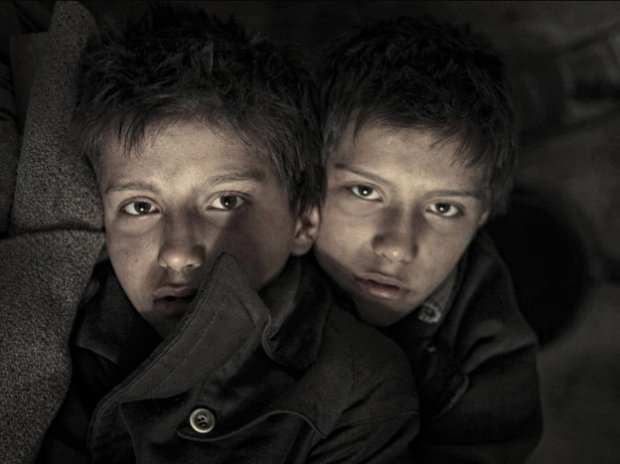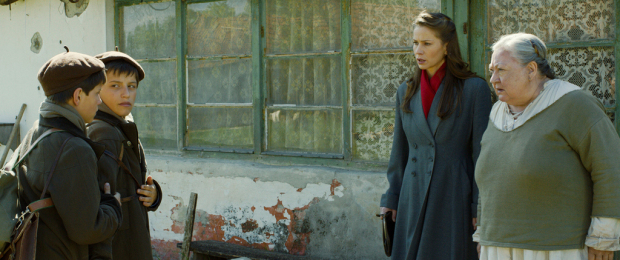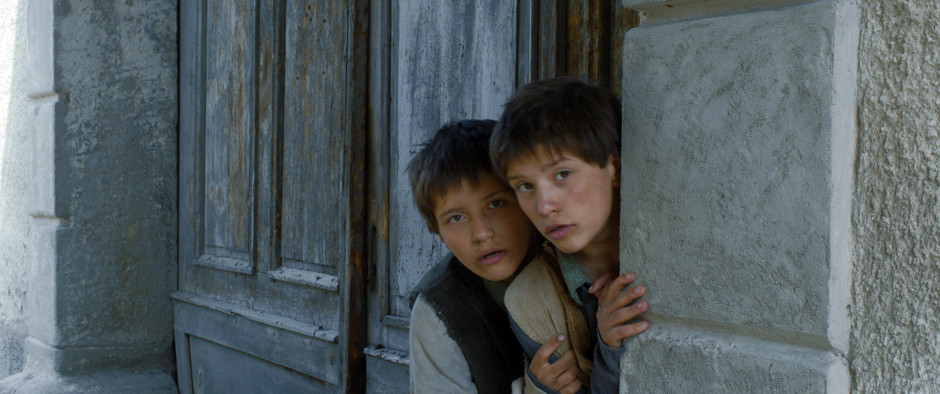In The Notebook, which opens in Toronto and Montreal on Sept. 26, Hungarian film director Janos Szasz transports a viewer into a Darwinian world where only the fittest survive.
It’s August 1944 and Hungary is at war. A soldier returns from the front and is reunited with his wife and two pre-pubescent twin sons. He stays the night and leaves the following day. Before he departs, he informs the boys that they will spend the remainder of the war with their maternal grandmother on a farm. He asks them to keep a detailed diary of their sojourn in the countryside.

The odyssey they embark upon will leave them stronger, wiser and harder. Indeed, it will turn them into men during a period of about nine months.
Their loving mother accompanies the twins on the train journey. Their grandmother, a coarse, profane, hard-bitten, outsize figure, is estranged from her daughter. Szasz, unconventionally, chooses not to identity any of the characters by their respective names. But over the two hour length of the film, the major ones, albeit nameless, leave quite an impression.
Seemingly inseparable, the boys are devastated when their mother bids them good-bye, leaving them in the care of their gruff grandmother. After keeping them waiting outside for hours, she finally lets them into her spare, unadorned house. The following morning, she puts them to work. “You have to earn your food,” she warns the boys, calling them “bastards” from that point onward.
For much of the rest of the time, she treats them meanly, prompting the boys to toughen themselves up so so they can withstand pain, hunger, cold and her repellent personality. After a while, she no longer intimidates the boys, but continues to torment them.
In sub-plots, they meet a retarded local young woman who accuses them of theft, a German officer with a neck brace who takes a shine to them and an attractive blonde maid who tries to seduce them.
Since the film is mostly set in 1944, the year Germany occupied Hungary and proceeded to deport its Jewish population to Auschwitz, Szasz inserts two scenes relating to Jews into the film.
In the first scene, a Jewish shoemaker gives each of the boys a free pair of boots, an act of kindness they repay when a local woman refers disparagingly to Jews. In the second scene, Jews of a nearby town are led away in a solemn procession, their departure marked by shouted insults from some residents.

These incidents, all unfolding in an unforgiving landscape of war, violence and cruelty, fortify and harden the twins, who are portrayed with poise and polish by the brothers Laszlo and Andras Gyemant.
The Notebook is unrelievedly grim, like Jerzy Kosinski’s arresting and picaresque novel of Nazi-occupied wartime Poland, The Painted Bird. To his credit, Szasz doesn’t pull punches and tells the story unsparingly.
